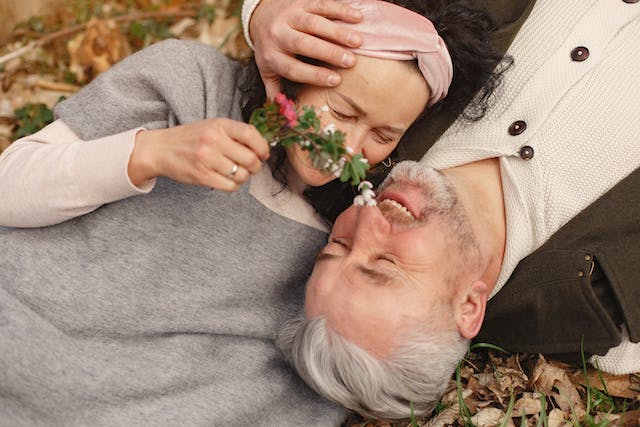The aging process is a natural and inevitable part of life that affects every aspect of the human body, including the reproductive system. In women, the reproductive system undergoes significant changes as they age, leading to various physiological and hormonal shifts. This article aims to provide a comprehensive understanding of how aging influences a woman’s reproductive system and its implications.

1. Menstrual Changes
One of the most noticeable effects of aging on a woman’s reproductive system is the changes in her menstrual cycle. As women approach their late 30s and early 40s, they typically experience irregular menstrual periods. This is primarily due to a decrease in the number and quality of eggs in the ovaries, resulting in fewer ovulatory cycles.
2. Decline in Fertility
Aging is closely associated with a decline in fertility. Women are born with a finite number of eggs, and this reserve diminishes with time. By the age of 35, fertility begins to decline more rapidly, making it more challenging to conceive. This decrease in fertility is attributed to both the quantity and quality of eggs.
3. Menopause
Menopause is a significant milestone in a woman’s life, marking the end of her reproductive years. It usually occurs between the ages of 45 and 55. Menopause is characterized by the cessation of menstrual cycles and a dramatic drop in the production of oestrogen and progesterone, the two primary female sex hormones.
4. Hormonal Changes
As women age, their hormonal balance shifts. The decrease in estrogen levels during menopause can lead to various symptoms, such as hot flashes, night sweats, and vaginal dryness. These hormonal changes can also impact sexual desire and overall well-being.
5. Increased Risk of Gynaecological Conditions
Aging is associated with an increased risk of various gynecological conditions, including uterine fibroids, ovarian cysts, and endometriosis. The Labia Minora loses elasticistyand the vagina dries up. Postmenopausal women are at a higher risk of developing conditions like osteoporosis and urinary incontinence.
Aging has a profound impact on a woman’s reproductive system, leading to changes in menstrual cycles, fertility, hormonal balance, and an increased risk of gynaecological conditions. Understanding these effects is crucial for women as they navigate their reproductive health throughout their lives.
What can you do as a preventative?
Nurturing Vibrant Gynaecological Health as You Age
Holistic Pelvic Care (HPC) is an integrative approach to women’s reproductive health that focuses on maintaining well-being through all life stages, particularly as women age. This innovative method combines physical and emotional well-being to promote vibrant gynaecological health as they age.
1. Holistic Approach
HPC acknowledges the interconnectedness of the mind, body, and spirit. It encourages women to view their gynecological health as a holistic part of their overall well-being. This approach empowers women to be active participants in their own care, promoting a deep sense of self-awareness and self-care.
2. Emotional Wellness
Aging can bring about emotional changes and stressors related to gynaecological health. HPC incorporates emotional support and therapy, helping women navigate emotional challenges such as menopausal symptoms, sexual health, and body image concerns. Addressing emotional well-being is an essential component of maintaining vibrant gynaecological health through aging.
3. Pelvic Floor Health
The pelvic floor is a vital component of gynaecological health, and it undergoes changes as women age. HPC includes exercises, therapies, and techniques to strengthen and maintain pelvic floor health. This helps prevent issues like urinary incontinence, pelvic organ prolapse, and sexual dysfunction.
4. Hormone Balance
Hormonal changes are a natural part of aging, particularly during menopause. HPC explores natural and holistic ways to manage hormonal imbalances. It may involve dietary adjustments, stress reduction techniques, and the use of herbal remedies to ease menopausal symptoms.
5. Mind-Body Connection
HPC emphasizes the mind-body connection, recognizing that emotional and mental well-being can significantly impact gynaecological health. Practices such as mindfulness, meditation, and yoga can be integrated into HPC to promote relaxation, reduce stress, and improve overall health.
6. Vaginal Health & Vitality
HPC can maintain vaginal lubrication because the exercises support healthy blood flow and nutrient exchange within the vaginal canal. The meditation exercise ensures an energetic balance maintaining a connection with the resonance field. Many women experience this vitality as sexual energy, thus maintaining sex drive and connection with partners.

Holistic Pelvic Care is a comprehensive and nurturing approach to women’s gynaecological health that supports a vibrant and fulfilling life through the aging process. By addressing emotional well-being, pelvic health, hormonal balance, and the mind-body connection, HPC empowers women to take control of their reproductive health and well-being as they age. It encourages a proactive approach to aging and promotes a strong foundation for a fulfilling life.
Holistic Pelvic Care (TM), created by women’s health physical therapist, Tami Lynn Kent
“The primary goal of HPC is to empower a woman to inhabit her pelvic space and occupy her feminine ground physically, energetically, emotionally & spiritually”
-Tami Lynn Kent
Main – Photo by Vlada Karpovich




